
Res is a journal of anthropology and comparative aesthetics dedicated to the study of the object, in particular cult and belief objects and objects of art. The journal presents contributions by philosophers, art historians, archaeologists, critics, linguists, architects, artists, and others. Its field of inquiry is open to all cultures, regions, and historical periods. Res also publishes iconographic and textual documents important to the history and theory of the arts.
Res appears twice yearly, in the spring and autumn. The journal is edited by Francesco Pellizzi. More information about Res is available at www.res-journal.org.
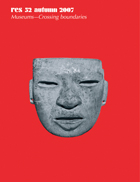
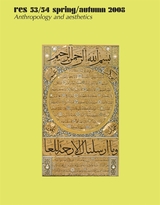
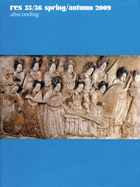
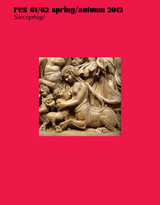
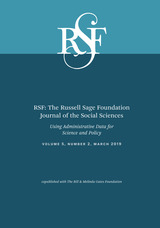
In the twenty-first century, administrative data collected by the government, schools, hospitals, and other institutions are essential for effectively managing and evaluating public programs. Yet the U. S. lags behind many other countries when it comes to organizing these data and making linkages across different domains, such as education, health, and the labor market. This double issue of RSF, edited by sociologist Andrew Penner and developmental psychologist Kenneth Dodge, illustrates the tremendous potential of administrative data and provides guidance for the researchers and policymakers. Contributors across multiple disciplines demonstrate how linking disparate sources of administrative data can help us better understand the challenges faced by people in need, thereby improving the reach and efficiency of policy solutions.
Several contributors show how databases tracking educational attainment yield new insights into the role of schools in either ameliorating or perpetuating socioeconomic inequalities. Sean Reardon analyzes standardized test scores of roughly 45 million K-12 students nationwide to explore how educational opportunity varies by school districts over time. He finds that while affluent districts typically provide high levels of early childhood learning opportunities, there are some schools in high-poverty districts that do have increased average test scores between third and eighth grade. However, this growth still does not close the large achievement gap between low-and high-socioeconomic-status students. Megan Austin and coauthors, using student-level longitudinal data from Indiana, analyze the effects of school voucher programs on academic achievement and find that students who switch from a public to a private school with a voucher experience significant declines in achievement, particularly in math.
Other articles demonstrate how the analysis of administrative data can further our understanding of racial and gender inequality. Janelle Downing and Tim Bruckner link housing foreclosure records and birth records to show that foreclosures and related stresses during the Great Recession contributed to premature births and lower birth weights, particularly for Hispanic mothers and their children. Roberto Fernandez and Brian Rubineau investigate hiring data to explore how network recruitment, or recruitment through employer referrals, affects the “glass ceiling” in the workplace. They show that network recruitment increases women’s representation strongly at lower job levels, and to a lesser extent at higher levels.
Researchers now have unprecedented access to administrative data. As this issue shows, finding innovative ways to combine multiple data sets can facilitate partnerships between social scientists, administrators, and policymakers and extend our understanding of pressing social issues.
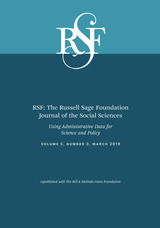
In the twenty-first century, administrative data collected by the government, schools, hospitals, and other institutions are essential for effectively managing and evaluating public programs. Yet the U. S. lags behind many other countries when it comes to organizing these data and making linkages across different domains, such as education, health, and the labor market. This double issue of RSF, edited by sociologist Andrew Penner and developmental psychologist Kenneth Dodge, illustrates the tremendous potential of administrative data and provides guidance for the researchers and policymakers. Contributors across multiple disciplines demonstrate how linking disparate sources of administrative data can help us better understand the challenges faced by people in need, thereby improving the reach and efficiency of policy solutions.
Several contributors show how databases tracking educational attainment yield new insights into the role of schools in either ameliorating or perpetuating socioeconomic inequalities. Sean Reardon analyzes standardized test scores of roughly 45 million K-12 students nationwide to explore how educational opportunity varies by school districts over time. He finds that while affluent districts typically provide high levels of early childhood learning opportunities, there are some schools in high-poverty districts that do have increased average test scores between third and eighth grade. However, this growth still does not close the large achievement gap between low-and high-socioeconomic-status students. Megan Austin and coauthors, using student-level longitudinal data from Indiana, analyze the effects of school voucher programs on academic achievement and find that students who switch from a public to a private school with a voucher experience significant declines in achievement, particularly in math.
Other articles demonstrate how the analysis of administrative data can further our understanding of racial and gender inequality. Janelle Downing and Tim Bruckner link housing foreclosure records and birth records to show that foreclosures and related stresses during the Great Recession contributed to premature births and lower birth weights, particularly for Hispanic mothers and their children. Roberto Fernandez and Brian Rubineau investigate hiring data to explore how network recruitment, or recruitment through employer referrals, affects the “glass ceiling” in the workplace. They show that network recruitment increases women’s representation strongly at lower job levels, and to a lesser extent at higher levels.
Researchers now have unprecedented access to administrative data. As this issue shows, finding innovative ways to combine multiple data sets can facilitate partnerships between social scientists, administrators, and policymakers and extend our understanding of pressing social issues.
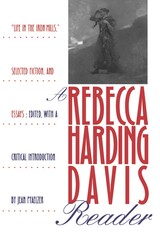
Rebecca Harding Davis was a prolific writer who published chiefly in popular periodicals over the latter half of the nineteenth century. In tales that combine realism with sentimentalism and in topical essays, Davis confronted a wide range of current issues—notably women’s problems—as one who knew the frustration caused by the genteel female’s helpless social position and barriers against women entering the working world. In an excellent critical introduction, Jean Pfaelzer integrates cultural, historical, and psychological approaches in penetrating readings of Davis’s work. She emphasizes how Davis’s fictional embrace of the commonplace was instrumental in the demise of American romanticism and in eroding the repressive cultural expectations for women.
In both fiction and nonfiction, Davis attacked contemporary questions such as slavery, prostitution, divorce, the Spanish-American War, the colonization of Africa, the plight of the rural South, northern racism, environmental pollution, and degraded work conditions generated by the rise of heavy industry. Written from the standpoint of a critical observer in the midst of things, Davis’s work vividly recreates the social and ideological ferment of the post-Civil War United States. The American literary canon is enriched by this collection, nearly all of which is reprinted for the first time.
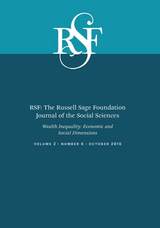
Several contributors investigate the growing chasm in wealth between the rich and the middle class. Edward Wolff attributes much of the recent wealth loss among the middle class to the housing market crash, as housing accounts for a much greater share of their total wealth than it does for the rich. Jonathan Fisher and coauthors show that wealth inequality is far higher than inequality in income and consumption, and argue that because wealth acts as a buffer to income changes, it is perhaps the most relevant measure of economic inequality. Others explore the persistent racial wealth gap. Alexandra Killewald and Brielle Bryan show that the average wealth return on home ownership for African Americans is only a quarter of the return for whites. Bryan Sykes and Michelle Maroto find that the incarceration of a family member is associated with reduced family wealth, exacerbating the racial wealth gap because of racial disparities in incarceration.
Other articles focus on the effects of wealth inequality on families and relationships. Emily Rauscher finds that that parents’ financial support for their children’s education, which has positive effects on children’s educational attainment, is increasingly connected to parental wealth, tightening the link between wealth inequality and inequality of opportunity. And Alicia Eads and Laura Tach find that while greater family wealth is associated with more stable marriages, lack of wealth—particularly in the form of unsecured debt—is associated with marital instability.
As wealth inequality has increased, it is increasingly important to understand its origins and manifold social and economic consequences for current and future generations.

To celebrate the acquisition of the archive of distinguished artist Tom Phillips, the Bodleian Library asked the artist to assemble and design a series of books drawing on his themed collection of over 50,000 photographic postcards. These encompass the first half of the twentieth century, a period in which, thanks to the ever cheaper medium of photography, ordinary people could afford to own portraits of themselves. Each book in the series contains two hundred images chosen from a visually rich vein of social history. Their covers also feature thematically linked paintings, specially created for each title, from Phillips’s signature work, A Humument.
Readers, as its title suggests, shows people reading (or pretending to read) a wide variety of material, from the Bible to Film Fun, either in the photographer’s studio, in their own home, or on vacation on the beach. Each of these unique and visually stunning books give a rich glimpse of forgotten times and will be greatly valued by art and history lovers alike.
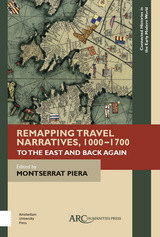
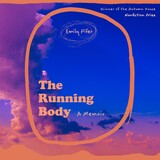
Emily Pifer’s debut memoir, The Running Body, wrestles and reckons with power and agency, language and story, body dysphoria and beauty standards, desire and addiction, loss and healing. Pifer employs multiple modes of storytelling—memoir, meditation, and cultural analysis—interweaving research, argument, and experience as she describes how, during her time as a collegiate distance runner, she began to run more while eating less. Many around her, including her coaches, praised her for these practices. But as she became faster, and as her body began to resemble the bodies that she had seen across start-lines and on the covers of running magazines, her bones began to fracture. Pifer tells her story alongside the stories of her teammates, competitors, and others as they all face trouble regarding their bodies.
Through the lens of long-distance running, Pifer examines the effects of idolization and obsession, revealing the porous boundaries between what counts as success and what is considered failure. While grounded in truth, The Running Body interrogates its relationship to magical thinking, the stories we tell ourselves, and the faultiness of memory. Fractures, figurative and literal, run through the narrative as Pifer explores the ways bodies become entangled in stories.
The Running Body was selected by Steve Almond as the winner of the 2021 Autumn House Nonfiction Prize.
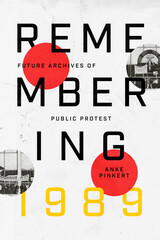
For many, 1989 is an iconic date, one we associate with the fall of the Berlin Wall and the end of the Cold War. The year prompts some to rue the defeat of socialism in the East, while others celebrate a victory for democracy and capitalism in the reunified Germany. Remembering 1989 focuses on a largely forgotten “interregnum”: the months between the outbreak of protests in the German Democratic Republic in 1989 and its absorption by the West in 1990. Anke Pinkert, who herself participated in those protests, recalls these months as a volatile but joyous “laboratory of radical democracy,” and tells the story of how and why this “time out of joint” has been erased from Germany’s national memory.
Remembering 1989 argues that in order to truly understand Germany’s historic transformation, we must revisit protesters’ actions across a wide range of minor, vernacular, and often transient sources. Drawing on rich archives including videotapes of untelevised protests, illegally printed petitions by Church leaders, audio recordings of dissident meetings, and interview footage with military troops, Pinkert opens the discarded history of East European social uprisings to new interpretations and imagines alternatives to Germany’s neoliberal status quo. The result is a vivid, unexpected contribution to memory studies and European history.

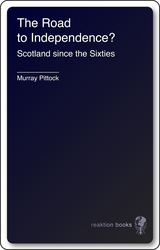
Pittock charts Scotland’s economic, cultural, and social histories, focusing on the history and cultural impact of Scottish cities and industries, the role of multiculturalism in contemporary Scottish society, and the upheaval of devolution, including the 2007 election of Scotland’s first nationalist government. From the architecture and art of Edinburgh and Glasgow to the Scottish Parliament, the book investigates every aspect of modern Scottish society to explain the striking rise of Scottish nationalism since 1960. The Road to Independence? reveals a new perspective on modern Scottish culture, making it an invaluable read for history scholars and lovers of Scotland alike.
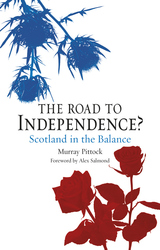
Pittock charts Scotland’s economic, cultural, and social histories, focusing on the history and cultural impact of Scottish cities and industries, the role of multiculturalism in contemporary Scottish society, and the upheaval of devolution, including the 2007 election of Scotland’s first nationalist government. From the architecture and art of Edinburgh and Glasgow to the Scottish Parliament, the book investigates every aspect of modern Scottish society to explain the striking rise of Scottish nationalism since 1960. Now brought up to date and with a new foreword by Scottish First Minister Alex Salmond, The Road to Independence? reveals a new perspective on modern Scottish culture on the eve of Scotland’s referendum on independence from the UK in September 2014.
“Enormously informative and often thought-provoking. . . . This book could hardly be improved on: it’s lively, lucid, witty, beautifully written.”—Scotsman
“A well-arranged exposition of the various pressures and stresses Scottish society has faced and faces still.”—Diplomat
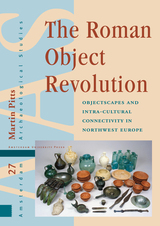

Plato, the great philosopher of Athens, was born in 427 BCE. In early manhood an admirer of Socrates, he later founded the famous school of philosophy in the grove Academus. Much else recorded of his life is uncertain; that he left Athens for a time after Socrates' execution is probable; that later he went to Cyrene, Egypt, and Sicily is possible; that he was wealthy is likely; that he was critical of 'advanced' democracy is obvious. He lived to be 80 years old. Linguistic tests including those of computer science still try to establish the order of his extant philosophical dialogues, written in splendid prose and revealing Socrates' mind fused with Plato's thought.
In Laches, Charmides, and Lysis, Socrates and others discuss separate ethical conceptions. Protagoras, Ion, and Meno discuss whether righteousness can be taught. In Gorgias, Socrates is estranged from his city's thought, and his fate is impending. The Apology (not a dialogue), Crito, Euthyphro, and the unforgettable Phaedo relate the trial and death of Socrates and propound the immortality of the soul. In the famous Symposium and Phaedrus, written when Socrates was still alive, we find the origin and meaning of love. Cratylus discusses the nature of language. The great masterpiece in ten books, the Republic, concerns righteousness (and involves education, equality of the sexes, the structure of society, and abolition of slavery). Of the six so-called dialectical dialogues Euthydemus deals with philosophy; metaphysical Parmenides is about general concepts and absolute being; Theaetetus reasons about the theory of knowledge. Of its sequels, Sophist deals with not-being; Politicus with good and bad statesmanship and governments; Philebus with what is good. The Timaeus seeks the origin of the visible universe out of abstract geometrical elements. The unfinished Critias treats of lost Atlantis. Unfinished also is Plato's last work of the twelve books of Laws (Socrates is absent from it), a critical discussion of principles of law which Plato thought the Greeks might accept.
The Loeb Classical Library edition of Plato is in twelve volumes.

Plato, the great philosopher of Athens, was born in 427 BCE. In early manhood an admirer of Socrates, he later founded the famous school of philosophy in the grove Academus. Much else recorded of his life is uncertain; that he left Athens for a time after Socrates' execution is probable; that later he went to Cyrene, Egypt, and Sicily is possible; that he was wealthy is likely; that he was critical of 'advanced' democracy is obvious. He lived to be 80 years old. Linguistic tests including those of computer science still try to establish the order of his extant philosophical dialogues, written in splendid prose and revealing Socrates' mind fused with Plato's thought.
In Laches, Charmides, and Lysis, Socrates and others discuss separate ethical conceptions. Protagoras, Ion, and Meno discuss whether righteousness can be taught. In Gorgias, Socrates is estranged from his city's thought, and his fate is impending. The Apology (not a dialogue), Crito, Euthyphro, and the unforgettable Phaedo relate the trial and death of Socrates and propound the immortality of the soul. In the famous Symposium and Phaedrus, written when Socrates was still alive, we find the origin and meaning of love. Cratylus discusses the nature of language. The great masterpiece in ten books, the Republic, concerns righteousness (and involves education, equality of the sexes, the structure of society, and abolition of slavery). Of the six so-called dialectical dialogues Euthydemus deals with philosophy; metaphysical Parmenides is about general concepts and absolute being; Theaetetus reasons about the theory of knowledge. Of its sequels, Sophist deals with not-being; Politicus with good and bad statesmanship and governments; Philebus with what is good. The Timaeus seeks the origin of the visible universe out of abstract geometrical elements. The unfinished Critias treats of lost Atlantis. Unfinished also is Plato's last work of the twelve books of Laws (Socrates is absent from it), a critical discussion of principles of law which Plato thought the Greeks might accept.
The Loeb Classical Library edition of Plato is in twelve volumes.
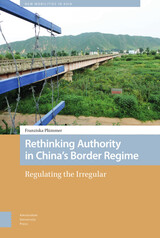
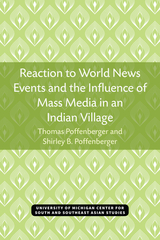

This entertaining and richly illustrated book examines the history of the diamond trade through the centuries from India and Brazil to South Africa and Europe and investigates what happens to diamonds once they reach the cutters and polishers. Marcia Pointon takes the reader on a unique tour of the ways in which the quadrahedron diamond shape has inspired design, architecture, and painting, from the symbolism of medieval manuscripts to modern-day graffiti. She questions the etiquette of engagement rings, and she reminds us why and how lost, stolen, or cursed diamonds create suspense in so many classic novels and films. This compelling and fascinating account of the history of sparklers around the world will appeal to all who covet, as well as all who despise, the unparalleled brilliance and glitter of the diamond.
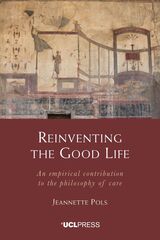
Ever since Adam Smith’s musings on “the invisible hand” became more famous than his work on moral sentiments, social theorists started to pay less attention to everyday ethics and aesthetics. Smith’s metaphor of the invisible hand posits that social outcomes emerge by dint of the behaviors of individuals rather than their intentions or virtues.
Modernist and scientific approaches to determining the common good or good forms of governance have increasingly relied on techniques of generalization, rationalization, and universalization. Everyday ethics and aesthetics—and recently also matters of truth—came to be regarded as individual matters of taste. This shift, however, has meant that we no longer comprehend why and how people display a deep concern with everyday life values in their social practices. People continue to enact these values and live by them while academics lack the vocabulary and methods to grasp them.
By reconstructing the history of ideas about everyday-life values, and by analyzing the role of such values in contemporary care practices for patients with chronic disease in the Netherlands, Reinventing the Good Life seeks to explore new ways to study the values of everyday life, particularly in situations where the achievement of a clear-cut or uniform good is unlikely. The book presents a practice-based epistemology and methodology for studying everyday care practices and supporting their goodness. This analytical approach ultimately aims to generate ideas that will allow us to relate in more imaginative ways to the many pressing concerns that we are forced to live with today.
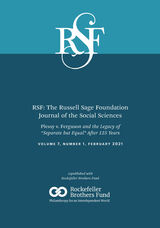
The contributors grapple with a central overarching question: How is it that a court decision from 125 years ago still has such an enduring impact on racial disparities? john a. powell provides a nuanced overview of the legal context of the case to show that segregation was not only about separating people by race but was primarily about preserving White supremacy. The wide latitude for judicial interpretation granted to judges means that who decides matters, and today, just as much as in 1896, the justices sitting on the Supreme Court matter. If the views of Justice Harlan – the lone dissenter in Plessy – had prevailed, U.S. jurisprudence would look very different today.
Thomas J. Davis discusses how control over personal identity lay at the heart of Plessy, and how its denial of basic human rights and fundamental freedoms reverberates today. From sex and marriage to adoption, gender recognition, employment, and voting, persistent discrimination turns in various degrees on state authority to define, categorize, and deny freedom of personal identity. To ensure personal autonomy in such domains requires the continual reevaluation of U.S. law to recognize the freedom of individuals to define and express their own identities.
Looking at enduring educational impact of “Separate but Equal,” which was not entirely rectified by the 1954 decision outlawing school segregation in Brown v. Board of Education, Dania V. Francis and William A. Darity, Jr., link today’s ongoing within-school segregation to the legacy of racialized tracking born from White resistance to desegregation. They demonstrate how a short-term, concerted effort to increase the number of Black high school students taking advanced courses could lead to long-term benefits in closing the educational achievement gap and eliminating institutionalized segregation within our schools.
Plessy rightfully stands as one of the continuing stains on the history of our country in its ambivalence and unwillingness to address White dominance. This issue of RSF both corrects and expands the narrative around the Plessy decision, and provides important lessons for addressing the nation’s continuing racial travails. It is ideal for use by scholars, community leaders, and policy makers alike.
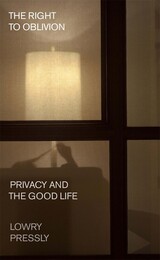
A visionary reexamination of the value of privacy in today’s hypermediated world—not just as a political right but as the key to a life worth living.
The parts of our lives that are not being surveilled and turned into data diminish each day. We are able to configure privacy settings on our devices and social media platforms, but we know our efforts pale in comparison to the scale of surveillance capitalism and algorithmic manipulation. In our hyperconnected era, many have begun to wonder whether it is still possible to live a private life, or whether it is no longer worth fighting for.
The Right to Oblivion argues incisively and persuasively that we still can and should strive for privacy, though for different reasons than we might think. Recent years have seen heated debate in the realm of law and technology about why privacy matters, often focusing on how personal data breaches amount to violations of individual freedom. Yet as Lowry Pressly shows, the very terms of this debate have undermined our understanding of privacy’s real value. In a novel philosophical account, Pressly insists that privacy isn’t simply a right to be protected but a tool for making life meaningful.
Privacy deepens our relationships with others as well as ourselves, reinforcing our capacities for agency, trust, play, self-discovery, and growth. Without privacy, the world would grow shallow, lonely, and inhospitable. Drawing inspiration from the likes of Hannah Arendt, Jorge Luis Borges, and a range of contemporary artists, Pressly shows why we all need a refuge from the world: not a place to hide, but a psychic space beyond the confines of a digital world in which the individual is treated as mere data.
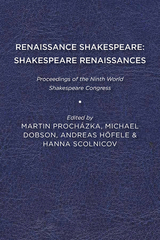
Published by University of Delaware Press. Distributed worldwide by Rutgers University Press.
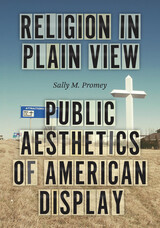
In Religion in Plain View, Sally M. Promey analyzes religion’s visible saturation of American public space and the histories that shaped this exhibitionary aesthetics. In street art, vehicle décor, signs, monuments, architecture, zoning policy, and more, Promey exposes American display’s merger of evangelicalism, capitalism, and imperialism. From this convergence, display materializes a distinctly American drive to advertise, claim territory, invalidate competitors, and fabricate a tractable national heritage. Charting this aesthetics’ strategic work as a Protestant technology of White nation formation, Religion in Plain View offers a dynamic critique of the ways public display perpetuates deeply ingrained assumptions about the proper shape of life and land in the United States.
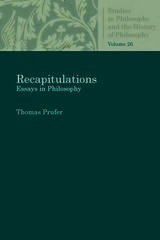
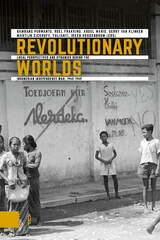
Bringing together two national historiographical traditions which have long remained largely separate, Revolutionary Worlds is the result of a collaboration between the Indonesian research project Proklamasi Kemerdekaan, Revolusi dan Perang di Indonesia ('Proclamation of Independence, Revolution and War in Indonesia', Universitas Gadjah Mada, Yogyakarta) and the Dutch research group of the Regional Studies project, under the umbrella of the research programme Independence, Decolonization, Violence and War in Indonesia, 1945-1950.
The authors of this book – Taufik Ahmad, Galuh Ambar Sasi, Maarten van der Bent, Martijn Eickhoff, Farabi Fakih, Roel Frakking, Apriani Harahap, Anne-Lot Hoek, Sarkawi B. Husain, Julianto Ibrahim, Gerry van Klinken, Erniwati, Mawardi Umar, Anne van der Veer, Abdul Wahid, Tri Wahyuning M. Irsyam, and Muhammad Yuanda Zara – work with various universities and research institutes in Indonesia and the Netherlands.
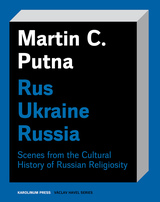
Examining key points in Russian cultural and spiritual history, Rus–Ukraine–Russia is essential reading for those wishing to understand the current state of Russia and Ukraine—the so-called heir to an “alternative Russia.” Putna uses literary and artistic works to offer a rich analysis of Russia as a cultural and religious phenomenon: tracing its development from the arrival of the Greeks in prehistoric Crimea to its invasion by “little green men” in 2014; explaining the cultural importance in Russ of the Vikings as well as Pussy Riot; exploring central Russian figures from St. Vladimir the Great to Vladimir Putin.
Unique in its postcolonial perspective, this is not merely a history of Russia or of Russian religion. This book presents Russia as a complex mesh of national, religious, and cultural (especially countercultural) traditions—with strong German, Mongol, Jewish, Catholic, Polish, and Lithuanian influences—a force responsible for creating what we identify as Eastern Europe.
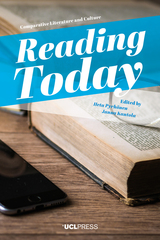
With Reading Today, Heta Pyrhönen and Janna Kantola have assembled contributions that respond to these questions and many more. The contributors unpack emerging strategies of reading. They consider, for example, how paying attention to our emotional reactions while reading can significantly affect how we experience the process. Other chapters consider the impacts of technology on reading through such topics as experimental literature, the contemporary encyclopedic novel, and the healing power of books.

Instead of operating from a base of unquestioned thought and systemic tradition, Radical Poetics presents more inclusive and accurate ways of contemplating literary work. Building on ideas and theoretical practices in Édouard Glissant, Toni Morrison, bell hooks, Saidiya Hartman, and Kimberlé Crenshaw, Queen reads for where love is present as well as for where it is absent—tracing systems of thought and aesthetic choices to track how characters are portrayed in terms of race, gender, class, and disability. She analyzes short stories, novels, nonfiction narratives, poetry, and a play from authors such as Herman Melville, Kate Chopin, Dionne Brand, Frances Ellen Watkins Harper, Ma-ka-tai-me-she-kia-kiak, Sor Juana Inés de la Cruz, Natasha Trethewey, and Muriel Rukeyser. Queen’s essays offer shifts in thinking about language—beyond calling out the ways language punishes vulnerability, entrenches harm, and suppresses true intercultural communication. Her intuitive approach aims to correct inaccuracies that have served as a foundation for the discriminatory thinking that undergirds American institutions and culture, particularly the continued glorification of violence. Radical Poetics makes a case for the imperative and practical value of understanding poetics beyond artistic and academic spaces and into everyday life.
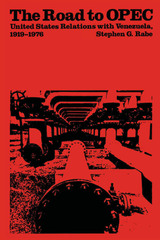
On September 10, 1960, Venezuela spearheaded the formation of the Organization of Petroleum Exporting Countries (other original members included Saudi Arabia, Iran, Iraq, and Kuwait). However, in a world abundantly supplied with oil, the United States could and did ignore Venezuelan suggestions that OPEC and the consuming nations work together to control production and to increase prices. Then, in late 1973, OPEC sent shudders throughout the world economy, and an energy crisis struck with full force. Emboldened by the power of their oil cartel, Venezuelan leaders denounced the old economic relationship with the United States, nationalized U.S. oil and steel holdings, and fashioned a foreign economic policy that differed sharply from Washington's.
The Road to OPEC is the story of the fiery debates among U.S. oil companies, the Department of State, and the Venezuelan government over oil policies—clashes that led Venezuela to establish OPEC and to nationalize U.S.-owned properties. In addition, this is the first study of twentieth-century Venezuelan-U.S. relations. Its focus on oil diplomacy is placed within the context of key U.S. policies toward Latin America and such programs as the Open Door, the Good Neighbor, and the Alliance for Progress. The author also provides insight into both the politics of the contemporary energy crisis and the growing split between raw-material producers and their industrial customers.
The Road to OPEC is based on extensive archival research, as well as the author's successful use of the Freedom of Information Act to declassify files of such agencies as the National Security Council and the CIA.
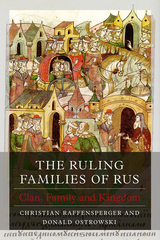
Kyivan Rus’ was a state in northeastern Europe from the late ninth to the mid-sixteenth century that encompassed a variety of peoples, including Lithuanians, Polish, and Ottomans. The Ruling Families of Rus explores the region’s history through local families, revealing how the concept of family rule developed over the centuries into what we understand as dynasties today. Examining a broad range of archival sources, the authors examine the development of Rus, Lithuania, Muscovy, and Tver and their relationships with the Mongols, Byzantines, and others. The Ruling Families of Rus will appeal to scholars interested in the medieval history of eastern Europe.
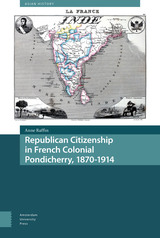
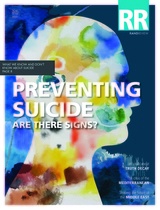

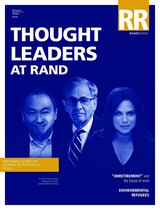
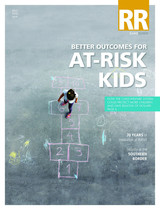
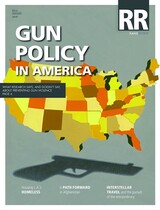
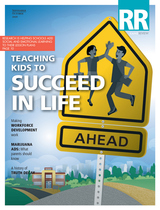
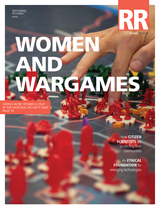
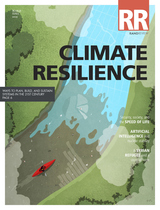
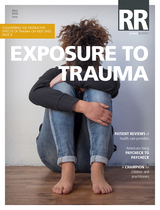


Set against the backdrop of the Obama presidency, Julian Randall's Refuse documents a young biracial man's journey through the mythos of Blackness, Latinidad, family, sexuality and a hostile American landscape. Mapping the relationship between father and son caught in a lineage of grief and inherited Black trauma, Randall conjures reflections from mythical figures such as Icarus, Narcissus and the absent Frank Ocean. Not merely a story of the wound but the salve, Refuse is a poetry debut that accepts that every song must end before walking confidently into the next music
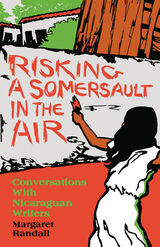
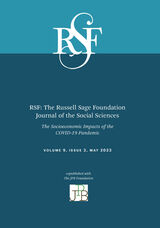
The 11 articles in this issue examine the impacts of the COVID-19 pandemic and federal and local responses to the crisis on social safety net usage, unemployment insurance (UI) recipiency, parenting and gender disparities, housing, and experiences with the criminal justice system. Marianne P. Bitler and colleagues find that during the pandemic, participation in the Supplemental Nutrition Assistance Program (SNAP) increased more in counties that experienced larger employment shocks, however, the SNAP pandemic benefit increases were less generous to Black and Hispanic SNAP participants as compared to White participants. Alex Bell and colleagues show while the UI recipiency rate increased substantially across the U.S. during the pandemic, wealthier states had higher recipiency rates and states with higher shares of Black residents had lower recipiency rates. Liana Christin Landivar and colleagues reveal that remote schooling was associated with reduced employment among mothers compared to fathers and women without children, with Black mothers experiencing the largest reduction in employment. Vincent J. Reina and Yeonhwa Lee find that low-income renters who received emergency rental assistance during the pandemic had lower arrears, a lower likelihood of having rent-related debt, and a lower likelihood of experiencing debilitating anxiety. Samantha Plummer and colleagues show that individuals leaving jail or who had criminal cases during the early phase of the pandemic suffered high levels of housing and food insecurity as well as joblessness, but those with co-occurring mental illness and substance abuse problems experienced the highest levels of material hardship.
This issue of RSF sheds light on how the pandemic and the corresponding government response have both reinforced and reshaped socioeconomic inequality in the United States.
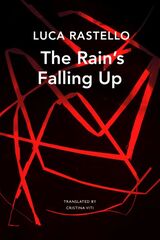
What was it really like to be a teenager growing up in Italy in the 1970s, during a time it has become all too easy to file away under “years of lead,” as the fathers’ betrayed ideals came face to face with the sons’ and daughters’ rebellions? What was happening in schools, in assemblies, social centers, and occupied factories as the postwar “economic miracle” was being dismantled from within? What moved the foremost French intellectuals of the time to sign an appeal against the repression of the student and workers’ movement in Italy? What did the bullets and heroin bring to a halt, and where did they come from? How does it feel when strategies of terror and police brutality become as ordinary as a TV dinner and as eerie as the plots of the science fiction novels you are plagiarizing to impress a girl? How are metropolitan geographies alchemized in the muscles of a young body crossing the shady lines between ages and sexes?
Luca Rastello raises these and other questions in an astonishing novel that splices chunks of plot and historical reconstruction into the free flow of memory and dream. Rain’s Falling Up tracks the trajectory of a generation while refusing to romanticize its protagonists or resolve the tensions that powered its volatile energy.
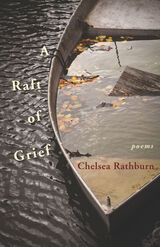
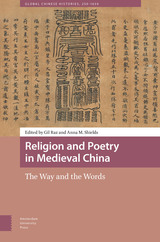

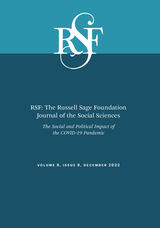
The 11 articles in this issue examine how information about the pandemic was disseminated, the disparate impacts of COVID-19 on different groups, and the government’s response to the pandemic. Courtney Page-Tan and colleagues find that people who relied on information from close social networks and trusted formal institutions, such as the CDC, were more likely to engage in behavior aimed at curbing the spread of COVID-19, such as staying home and avoiding crowded areas. Laura E. Evans and colleagues find that while Native Americans were disproportionately impacted by COVID-19, states in which Native Americans had greater representation and political power in state politics saw fewer COVID-19 cases on tribal lands. They also find that there were fewer COVID-19 cases on tribal lands with strong networks of community-based and tribally controlled health facilities. Claire Kamp Dush and colleagues find that individuals who identify as non-White or non-heterosexual experienced higher levels of COVID-19 stress and racial trauma stress, both of which are associated with poorer mental health outcomes. Sarah James and colleagues find that state variation in the collection and publication of COVID-19 data reflected state capacity. Yet the main driver of variation in state policy response and implementation of mitigation measures was primarily partisanship. Elizabeth Suhay and colleagues find that trust in federal, state, and local government all fell during the first year of the pandemic. However, individuals with more trust in state government and local health officials were more likely to engage in protective health behaviors, while those with higher trust in the federal government were less likely to engage in such behaviors.
While the impacts of the COVID-19 pandemic will continue for years to come, this volume of RSF begins the investigation into how the pandemic has altered social, cultural, and political dynamics in American society.
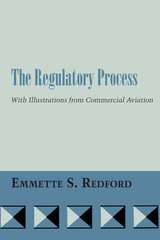
The subject of regulation is one of the most vital and troublesome in our system of government. In this detailed study of early and mid-twentieth-century regulation of commercial aviation Emmette S. Redford illustrates what happens when government regulates a particular industry.
He first sets forth the perspectives for a study of an area of regulation and develops an argument for eclectic perspectives in the study of selected systems, or universes, of social action, such as the performance of an economic function under government regulation.
These perspectives are illustrated in the following series of case studies on regulation of commercial aviation:
- The significance of belief patterns on the content of the Civil Aeronautics Act of 1938.
- The role of Congress in the regulation of commercial aviation in a two-year period.
- The interactions of Congress, the president, and the regulated industry in strengthening safety regulation through passage of the Federal Aviation Act of 1958.
- The actions of the Civil Aeronautics Board on a set of complicated economic issues in the General Passenger Fare Investigation.
- The position of the Air Transport Association in the regulatory pattern.
In "An Essay on Evaluation" Redford summarizes what is revealed in the case studies that is significant with respect to the system of government regulation. He searches for standards for evaluating a system of social control, or for evaluating parts of it, and relates his conclusions to issues regarding the beneficence of a system of regulated private supply of a service.
The Regulatory Process is a study of interest to the aviation industry, to students of regulation of the economy, and to those who seek an understanding of social systems.
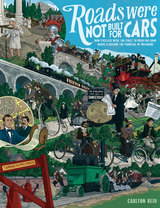

Contributors. Adina Back, Eliza Jane Reilly, Jarod H. Roll, Gary Wilder, Lewis Siegelbaum, R. J. Lambrose
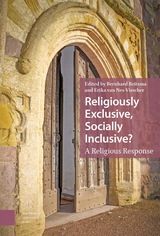
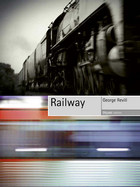
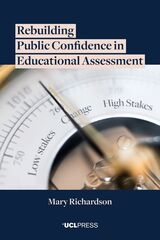
Educational assessment is important. Yet it is easy to feel that schooling and other phases of education are shaped entirely by certain assessments and that assessment is only about exam results. The idea that grades can accurately describe the aims and outcomes of education is both reductive and pervasive. This book is about the stories we tell each other about educational assessment and how they impact public trust and confidence in educational assessment. It explains the roots and nature of assessment discourses and proposes a restructuring of the debate to rebuild public confidence. It aims to challenge dominant assessment discourses and demands a more nuanced, informed debate about what happens in and beyond schools, and how this influences public thinking. Using examples from international settings to explore the nature of trust in assessment discourses, this book shows how these discourses can be reframed so that all aspects of the assessment system—policymaking, school planning, home practice with students—can be delivered with confidence.
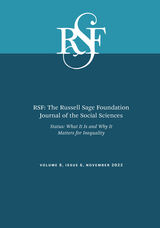
Note the copy pertains to two issues of RSF:
Status – a form of inequality based on esteem, respect, and honor – affects how people are treated in all aspects of their lives, including in schools, workplaces, politics, and even the family. It shapes people’s access to valued outcomes in life, such as income, education, and health. However, status is poorly understood and its significance in the construction of inequality is often underestimated. In this special double issue of RSF, sociologist Cecilia L. Ridgeway, social psychologist Hazel Rose Markus, and an interdisciplinary group of contributors examine how status functions in society and its role in inequality.
Issue 1 demonstrates that status is fundamental to inequality and shows that it is different from other forms of inequality. Tali Mendelberg presents a theory of how status functions in politics and differentiates the potent symbolic value of achieving greater esteem from status-seeking as a means to obtain resources, such as income, assets, or property. Biko Koeing finds that Trump voters were motivated not only by a perceived loss of status, but by the belief that this loss was unjust. Fabien Accominotti and colleagues assess the characteristics of status hierarchies and find that those with greater clarity, rigidity, and order have greater inequality between high and low status members.
Issue 2 examines how status is created and reinforced through cultural norms and in our relationships with one another. Hilary Holbrow finds that the gender pay gap is nearly three times greater in companies where low-status support roles are held primarily by females. Natasha Quadlin finds that college graduates who are perceived to be wealthy are also perceived to be more intelligent than they would be if they were perceived to be members of a lower socioeconomic group. Annette Lareau finds that married women often behave in ways – such as disengagement from financial matters or downplaying their own financial knowledge – that sustain their husband’s status as economic expert of the family. Bianca Manago and colleagues find that prior contact and group interaction between Whites, Blacks, and Mexican Americans decreases Whites’ anxiety about working with Blacks and Mexican Americans, but does not increase Whites’ perceptions of Blacks’ and Mexican Americans’ competence. Status interventions during interaction, however, do increase Whites’ perceptions of Mexican Americans’ competence and their influence in the group. Lehn Benjamin finds that staff at nonprofit organizations who share control and establish common ground with their clients reduce status hierarchies between staff and clients.
This volume of RSF sheds light on status as a powerful social force which pervades our lives, and demonstrates its role in creating and preserving inequality.
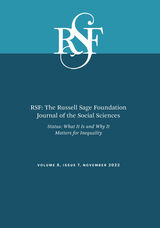
Note the copy pertains to two issues of RSF:
Status – a form of inequality based on esteem, respect, and honor – affects how people are treated in all aspects of their lives, including in schools, workplaces, politics, and even the family. It shapes people’s access to valued outcomes in life, such as income, education, and health. However, status is poorly understood and its significance in the construction of inequality is often underestimated. In this special double issue of RSF, sociologist Cecilia L. Ridgeway, social psychologist Hazel Rose Markus, and an interdisciplinary group of contributors examine how status functions in society and its role in inequality.
Issue 1 demonstrates that status is fundamental to inequality and shows that it is different from other forms of inequality. Tali Mendelberg presents a theory of how status functions in politics and differentiates the potent symbolic value of achieving greater esteem from status-seeking as a means to obtain resources, such as income, assets, or property. Biko Koeing finds that Trump voters were motivated not only by a perceived loss of status, but by the belief that this loss was unjust. Fabien Accominotti and colleagues assess the characteristics of status hierarchies and find that those with greater clarity, rigidity, and order have greater inequality between high and low status members.
Issue 2 examines how status is created and reinforced through cultural norms and in our relationships with one another. Hilary Holbrow finds that the gender pay gap is nearly three times greater in companies where low-status support roles are held primarily by females. Natasha Quadlin finds that college graduates who are perceived to be wealthy are also perceived to be more intelligent than they would be if they were perceived to be members of a lower socioeconomic group. Annette Lareau finds that married women often behave in ways – such as disengagement from financial matters or downplaying their own financial knowledge – that sustain their husband’s status as economic expert of the family. Bianca Manago and colleagues find that prior contact and group interaction between Whites, Blacks, and Mexican Americans decreases Whites’ anxiety about working with Blacks and Mexican Americans, but does not increase Whites’ perceptions of Blacks’ and Mexican Americans’ competence. Status interventions during interaction, however, do increase Whites’ perceptions of Mexican Americans’ competence and their influence in the group. Lehn Benjamin finds that staff at nonprofit organizations who share control and establish common ground with their clients reduce status hierarchies between staff and clients.
This volume of RSF sheds light on status as a powerful social force which pervades our lives, and demonstrates its role in creating and preserving inequality.
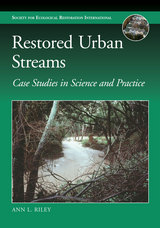
What has been missing, however, has been detailed guidance for restoration practitioners wanting to undertake similar urban stream restoration projects that worked with, rather than against, nature. This book presents the author’s thirty years of practical experience managing long-term stream and river restoration projects in heavily degraded urban environments. Riley provides a level of detail only a hands-on design practitioner would know, including insights on project design, institutional and social context of successful projects, and how to avoid costly and time-consuming mistakes. Early chapters clarify terminology and review strategies and techniques from historical schools of restoration thinking. But the heart of the book is the chapters containing nine case studies of long-term stream restoration projects in northern California. Although the stories are local, the principles, methods, and tools are universal, and can be applied in almost any city in the world.
Restoration practitioners, consultants, agency personnel, and students in applied restoration courses can learn from Riley’s succinct tour of restoration basics and powerful case studies, and apply them successfully in their own towns and cities.
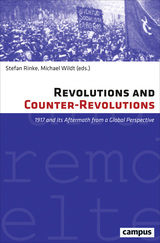

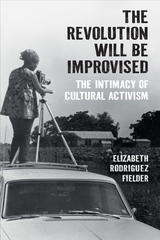
Reading the output of these programs, Elizabeth Rodriguez Fielder argues that intimacy-making became an extension of participatory democracy. In doing so, Fielder supplants the success-failure binary for understanding social movements, focusing instead on how care work aligns with creative production. The Revolution Will Be Improvised returns to improvisation’s roots in economic and social necessity and locates it as a core tenet of the aesthetics of obligation, where a commitment to others drives the production and result of creative work thus, this book puts forward a methodology to explore further the improvised, often ephemeral, works of art activism.

Experiencing urban space conjures visions of the past alongside contemplation of the present. This edited volume investigates this feeling of seeing double by investigating Paris—a city that has come to embody the tension of this sensation—through a dual lens of nostalgia and modernity.
Contributors survey Paris in film, poetry, and prose in the nineteenth and twentieth centuries, presenting the city as both a concrete reality and as a collection of the myths associated with it. Interdisciplinary and deeply researched, the essays distill complex concepts of the urban, the textual, and the modern for a wide readership.
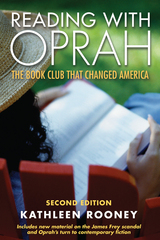
Adored by its fans, deplored by its critics, Oprah’s Book Club has been at the center of arguments about cultural authority and literary taste since it began in 1996. Reading with Oprah explores the club’s revolutionary fusion of books, television, and commerce and tells the engaging and in-depth story of the OBC phenomenon.
Kathleen Rooney combines extensive research with a dynamic voice to reveal the club’s far-reaching cultural impact and its role as crucible for the clash between “high” and “low” literary taste. Comprehensive and up-to-date, the book covers the club from its inception in 1996, through the Jonathan Franzen contretemps, the surprising suspension in 2002, and, after the club’s return in 2003, the progression from “great books” to memoir. New material includes an extensive look at the James Frey scandal and Oprah’s turn to contemporary fiction, including The Road and Middlesex.
Through close examination of Winfrey’s picks and personal interviews with book club authors and readers, Rooney demonstrates how the club that Barbara Kingsolver calls “one of the best possible uses of a television set” has, according to Wally Lamb, “gotten people of all ages to read, to read more, and to read widely.”
First edition published in 2005.
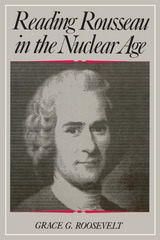
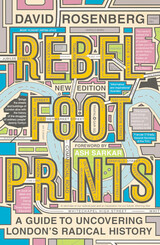
If you visit London, and you’ve only experienced Buckingham Palace, The Tower of London, and The Millennium Wheel, you’ve missed the true essence of London, and its politically-charged, rebellious history. A truly radical response to conservative heritage tours and banal day trips, Rebel Footprints brings to life the history of social movements in England's capital by providing lively commentary, maps, and walking tours you will not find anywhere else.
David Rosenberg transports readers from well-known landmarks to history-making hidden corners, while telling the story of protest and struggle in London from the early nineteenth to the mid-twentieth century.
From the suffragettes to the socialists, from the chartists to the trade unionists: Rosenberg invites us to step into the footprints of a diverse cast of dedicated fighters for social justice. Individual chapters highlight particular struggles and their participants, from famous faces to lesser-known luminaries. Chapters include:
*Writers and Rioters in the Fleet Street Precinct
*Trailblazers for Democracy in Clerkenwell Green
*The Spark of Rebellion in Bow
*Coming in from the Cold: Immigrant Agitators and Radicals in Spitalfields
*No Gods, No Masters: Radical Bloomsbury
*Life on the Boundary: Fighting for Housing in Bethnal Green and Shoreditch
*Stirrings from the South: The Battersea Four
*peaking Truth to Power: Suffragettes and Westminster
*Not Afraid of the Prison Walls: Rebel Women and Men of Poplar
*People's Power in Bermondsey
Rebel Footprints sets London's radical campaigners against the backdrop of the city's multi-faceted development. Self-directed walks pair with narratives that seamlessly blend history, politics, and geography, while specially commissioned maps and illustrations immerse the reader in the story of the city.
Whether you're visiting London for the first time, or born and raised there, Rosenberg invites you to see London as you never have before—the radical center of the English-speaking world.
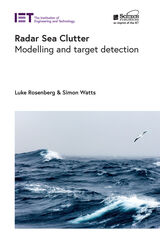
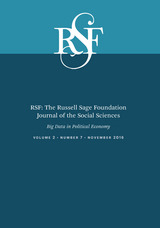
Among other topics, the articles in this issue demonstrate how large-scale data sources can be used to analyze campaign contributions and political participation. Adam Bonica outlines the development of a comprehensive “map” of the American political system that collects, processes, and organizes data on politicians’ campaign finances, policy positions, and voting records, and makes such information available to voters. Drew Dimmery and Andrew Peterson show how web-based data-gathering techniques can augment such a map to include political contributions made by nonprofits, which are often overlooked or not fully transparent. Deniz Igan links campaign contribution data to both policymakers’ voting records and financial institutions’ lending behavior and shows that legislators who were heavily lobbied by institutions engaging in risky lending, such as subprime lenders, were more likely to vote for deregulation. Chris Tausanovitch connects big data on voters’ income and policy preferences to the voting records of their congressional representatives in order to study how effectively the political system represents voters of different income levels. And Sharyn O’Halloran and coauthors discuss how big data can augment traditional observational research by replacing tedious hand coding of volumes of text with automated procedures.
As research in political economy increasingly focuses on the role of money in shaping the outcomes of elections and policymaking, new methods of aggregating and examining financial data have become central. Together, the papers in this volume show how big data provides unprecedented opportunities for social scientists to better understand the links between politics and markets.

This first comprehensive and thoroughly documented study of the political development of two of the newly formed nations of Central Africa presents the full story of the successful efforts of the people of Malawi and Zambia to achieve self-government. Following a detailed examination of the impact of British colonial rule, the author provides a new interpretation of the earliest demonstrations of native discontent and he explains how the forces of protest found expression through proto-political parties and the formation of religious sects and millennial movements. He also interprets the objectives and tactics of the ruling white settlers in their abortive effort to establish the Federation of Rhodesia and Nyasaland.
Basing his analysis on archival and other primary sources, including interviews with leading figures, Robert Rotberg traces the origins of the full-fledged political parties in both countries and describes the early congresses which were to become the dominant movements during the struggle for independence in Central Africa. He ends with an analysis of that struggle, bringing the story to its successful conclusion in late 1964. A postscript discusses the important changes of 1965.

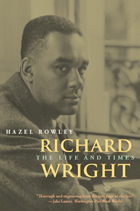
Drawing on journals, letters, and eyewitness accounts, Richard Wright probes the author’s relationships with Langston Hughes and Ralph Ellison, his attraction to Communism, and his so-called exile in France. Skillfully interweaving quotes from Wright’s own writings, Rowley deftly portrays a passionate, courageous, and flawed man who would become one of our most enduring literary figures.
“Splendid. . . . Richard Wright is well written, prodigiously researched, and nicely paced, a compelling evocation of the man, his craft, and the different worlds through which he moved.”—Michael J. Ybarra, Wall Street Journal
“A welcome and illuminating work . . . [Rowley] does an outstanding job. . . . Rich and revealing.”—Megan Harlan, San Francisco Chronicle
“A magnificent biography, subtle and insightful. . . . Rowley writes with style and grace, and her research on Wright is prodigious.”—Howard Zinn, The Week

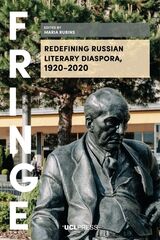
Since the start of the massive post-revolutionary exodus, Russian literature has thrived in multiple locations around the globe—but what happens to cultural vocabularies, politics of identity, literary canon, and language when writers transcend the metropolitan and national boundaries? This volume sets a new agenda for the study of Russian diaspora writing, reorienting the field from an excessive emphasis on the homeland to an analysis of transnational circulations that shape extraterritorial cultural practices. Integrating a variety of conceptual perspectives, ranging from diaspora and postcolonial studies to the theories of translation and self-translation, world literature, and evolutionary literary criticism, the contributors argue for a distinct nature of diasporic literary expression predicated on hybridity, ambivalence, and a sense of multiple belonging. As the complementary case studies demonstrate, diaspora narratives consistently recode historical memory, contest the mainstream discourses of Russianness, rewrite received cultural tropes, and explore topics that have remained marginal or taboo in the homeland.

Red Sun and Merlin Unchained are the most recent original stage works by one of the most accomplished yet neglected dramatists of our time. Red Sun is a two-hander, tightly tethered within the classical unities of theme and space and the span of a single day. Merlin Unchained is an explosive, multitudinous epic, crossing continents and centuries and passing between worlds. Yet though technically so different, both works speak with the same distinctive voice, offering an exhilarating—and sometimes disturbing— challenge to the cultural and political perceptions of the contemporary audience, and exploring alien worlds that, alarmingly, begin to become recognizable as our own.

2006 Choice Outstanding Academic Title
Thousands of religious traditions have appeared over the course of human history but only a relative few have survived. Some speak of a myriad of gods, others of only one, and some recognize no gods at all. Volumes have been written attempting to prove the existence or nonexistence of supernatural being(s). So, if religion is not about God, then what is it about?
In this provocative book, Loyal Rue contends that religion, very basically, is about us. Successful religions are narrative (myth) traditions that influence human nature so that we might think, feel, and act in ways that are good for us, both individually and collectively. Through the use of images, symbols, and rituals, religion promotes reproductive fitness and survival through the facilitation of harmonious social relations. Drawing on examples from the major traditions—Judaism, Christianity, Islam, Hinduism, and Buddhism—Rue shows how each religion, in its own way, has guided human behavior to advance the twin goals of personal fulfillment and social coherence.
As all faiths are increasingly faced with a crisis of intellectual plausibility and moral relevance, this book presents a compelling and positive view of the centrality and meaning of religion.
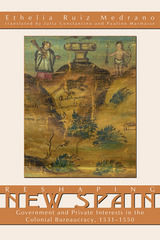
Drawing on extensive archival research, Ruiz examines the developing colonial institutions in Mexico and how they changed indigenous land ownership and labor laws to favor the new bureaucrats. This portrait of the emerging government in New Spain fills a critical niche in Latin American studies.
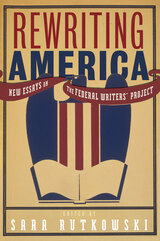
Established in 1935, the Federal Writers’ Project (FWP) sent over 6,500 unemployed historians, teachers, writers, and librarians out to document America’s past and present in the midst of the Great Depression. The English poet W. H. Auden referred to this New Deal program as “one of the noblest and most absurd undertakings ever attempted by any state.”
Featuring original work by scholars from a range of disciplinary perspectives, this edited collection provides fresh insights into how this extraordinary program helped transform American culture. In addition to examining some of the major twentieth-century writers whose careers the FWP helped to launch—including Ralph Ellison, Richard Wright, and Margaret Walker—Rewriting America presents new perspectives on the role of African Americans, Mexican Americans, Asian Americans, and women on the project. Essays also address how the project’s goals continue to resonate with contemporary realities in the midst of major economic and cultural upheaval.
Along with the volume editor, contributors include Adam Arenson, Sue Rubenstein DeMasi, Racheal Harris, Jerrold Hirsch, Kathi King, Maiko Mine, Deborah Mutnick, Diane Noreen Rivera, Greg Robinson, Robert Singer, James Sun, and David A. Taylor.
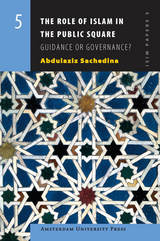
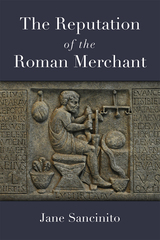
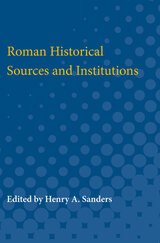
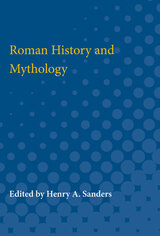
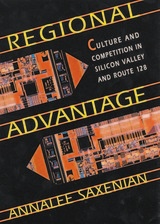
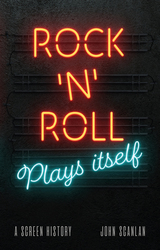
When rock ’n’ roll burst into life in the 1950s, the shockwaves echoed around the world, amplified by images of untamed youth projected on cinema screens. But for the performers themselves, corporate showbusiness remained very much in control, contriving a series of cash-in movies to exploit the new musical fad.
In this riveting cultural history, John Scanlan explores rock’s relationship with the moving image over seven decades in cinema, television, music videos, advertising, and YouTube. Along the way, he shows how rock was exploited, how it inspired film pioneers, and, not least, the film transformations it caused over more than half a century.
From Elvis Presley to David Bowie, and from Scorpio Rising to the films of Scorsese and DIY documentarists like Don Letts, this is a unique retelling of the story of rock—from birth to old age—through its onscreen life.


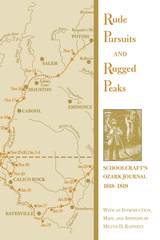
The journal kept by Schoolcraft as he traveled ninety days in the rugged terrain of southern Missouri and northern Arkansas was originally published in 1821 and has become an essential record of Ozark territorial society and natural history documenting some of the earliest American settlers in the region, the power and beauty of many lost portions of the White River, the majesty of the open prairies, and the wealth of wildlife once found in the Ozarks.
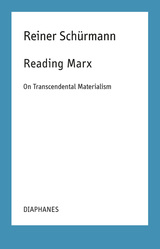
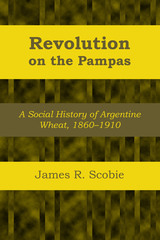
On the Argentine pampas, between the years 1860 and 1910, a dramatic social and agricultural revolution took place. The haunts of wild cattle, native peoples, and gauchos were transformed into cultivated fields and rich pastures. A land that had produced only scrawny sheep and cattle became one of the world’s leading exporters of wheat, corn, beef, mutton, and wool. A country that had had only a sparse and scattered Spanish and mestizo population now boasted a metropolis of one and a half million, and a national population of eight million people, nearly a third of whom were born in Europe. These were significant changes, and wheat growing played a major role in all of them. This study traces the development of the Argentine wheat zone, focusing on the part wheat played in forming the Argentina of today.
James R. Scobie begins his account with the first settlers who colonized Santa Fe in the 1850s and shows how they and thousands of other European immigrants converted this vast grassland into a world breadbasket. He explains why these small farmer-owners soon gave way to tenant farmers, and how crop farming developed primarily as servant to the predominant sheep and cattle interests. He expands on several factors responsible for this evolvement: the elimination of indigenous threat, the coming of the railroad, the agricultural policy—or lack of policy—of the Argentine government, and the urban orientation of the Argentine people.
The railroads, by suppressing the building of other roads through the pampas, had the effect of isolating the wheatgrowers. By making the products of the pampas available to world markets, the railroads opened up new trade, which helped the growth of cities tremendously; but this very prosperity pushed the cost of land far beyond the wheatgrower’s ability to buy it. The result was a pampas without settlers, a frontier filled with migrant sharecroppers and tenant farmers, a land exploited but not possessed. Transiency as well as isolation became the common denominators of these families, who were forced to move every few years to make way for more valued tenants—sheep and cattle. They left behind them no schools, no churches, no roads, no villages. Immigrants came to labor but not to sink their roots in the pampas.
Without sentimentality but with understanding and compassion, Scobie explores every facet of the lives of these laborers who created Argentina’s agricultural greatness. His examination of Argentina’s broad policies toward land, immigration, and tariffs shows that the national government had little lasting or effective interest in the country’s agricultural development. In a social sense, the thousands of immigrants who toiled the pampas were looked upon as the wild cattle or fertile soil—blessings which neither needed nor warranted official attention. Scobie’s conclusion is that Argentina got better than it deserved.

Reinhold Niebuhr - American Writers 31 was first published in 1963. Minnesota Archive Editions uses digital technology to make long-unavailable books once again accessible, and are published unaltered from the original University of Minnesota Press editions.


Ford may well have been motivated to spend great sums on the village industries in part to prevent the unionization of his company. But these industrial experiments represented much more than "union busting." They were significant examples of profound social, cultural, and ideological shifts in America between the World Wars as reflected in the thought and practice of one notable industrialist.
Howard P. Segal recounts the development of the plants, their fate after Ford's death, their recent revival as part of Michigan's renewed appreciation of its industrial heritage, and their connections to contemporary efforts to decentralize high-tech working and living arrangements.
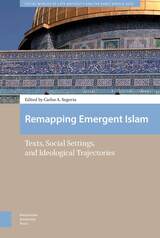

In the first English-language collection to examine twenty-first-century Russian theater, this special issue of Theater also includes the complete texts of two new Russian plays, published for the first time in English. Ivan Vyrypaev’s Oxygen is a poetic panorama of new Russian identity set to techno music, and Danila Privalov’s 5-25 explores traditional Dostoyevskian existential themes in the language of a new generation. One contributor chronicles the sweeping cultural and institutional changes in the Russian theater since 2000, while another provides an overview of the regional theater system in the world’s most geographically vast country. Another essay explores the development of the new playwriting movement, identifying its key writers and producers. This special issue also includes interviews with the movement’s directors and producers. Additionally, it contains letters, previously unpublished in English, from the Moscow Art Theater’s Olga Bokshanskaya to the Russian theatrical titan Vladimir Nemirovich-Danchenko, reporting on the Moscow Art Theater’s legendary U.S. tour in 1920–22, which was recorded in theater history as a turning point for American acting.
Contributors. AKHE, Dmitri Chernikov, Nina Chusova, Marina Dmitrievskaya, Sasha Dugdale, John Freedman, Elena Gremina, Nina Karpova, Mindaugus Korbauskis, Ryan McKittrick, Arkady Ostrovsky, Danila Privalov, Victor Rizhakov, Yana Ross, Tom Sellar, Kirill Serebrennikov, Anatoly Smeliansky, Julia Smeliansky, Ivan Vyrypaev
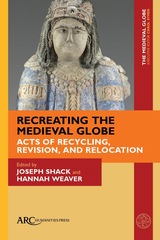

Through archival research, close textual reading, and an analysis of visual and aural performance artifacts, author Jonathan Shandell demonstrates how these artists negotiated a space on the public stage of the United States for cultivating radical Black aesthetic exploration and a spirit of courageous antiracist resistance. Readying the Revolution provides new insights into the activism and accomplishments of African American artists whose work helped lay the groundwork for a Black Nationalist cultural revolution, but whose influence has yet to receive its due recognition.


READERS
Browse our collection.
PUBLISHERS
See BiblioVault's publisher services.
STUDENT SERVICES
Files for college accessibility offices.
UChicago Accessibility Resources
home | accessibility | search | about | contact us
BiblioVault ® 2001 - 2024
The University of Chicago Press









